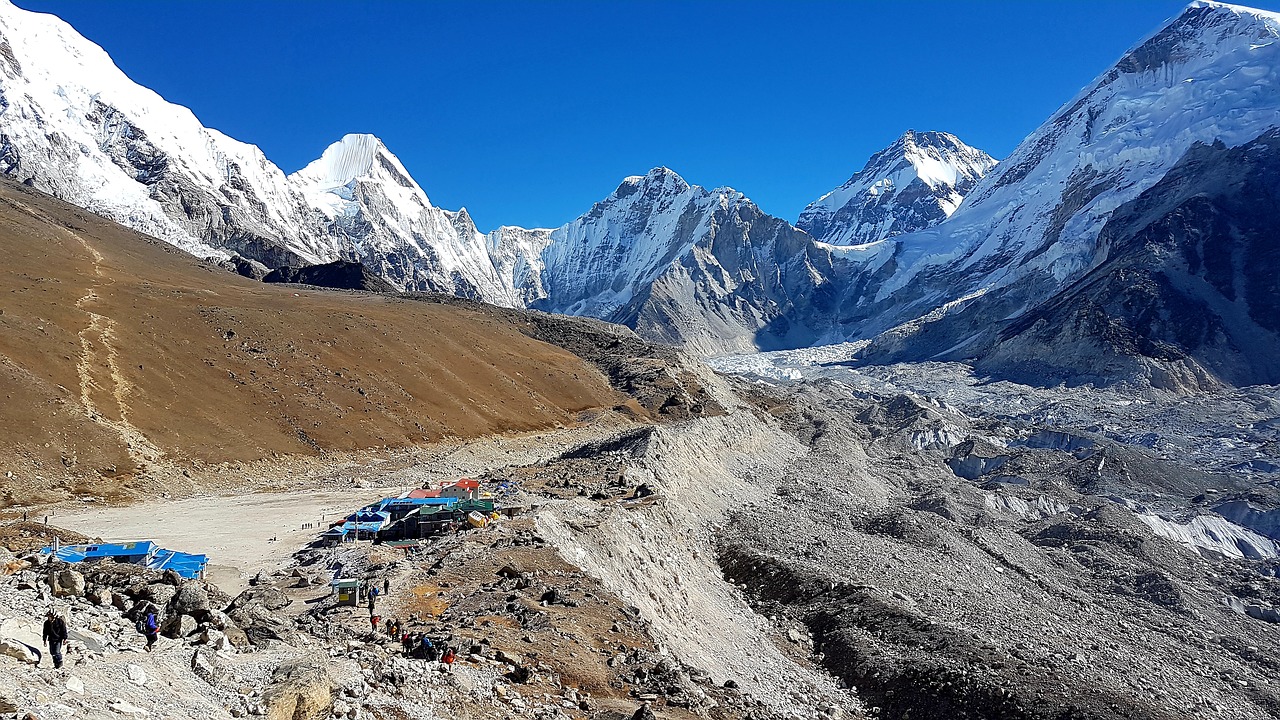EVEREST BASE CAMP -13 THINGS TO KNOW FOR YOU
Introduction:
Trekking to Everest Base Camp is a dream come true for many adventure enthusiasts. Every year, thousands of people from all over the world set off on a journey to conquer the world’s tallest peak. However, this trek is not for the faint of heart, as it requires physical endurance, mental toughness, and a lot of preparation.
Many hikers have gained valuable knowledge from trekking on the Himalayan path to Everest Base Camp. For some, completing this trek is a rite of passage for any serious hiker. Others undertake this journey to reach the towering peak of the world, where they can have an intimate encounter with the highest summit. The Everest Base Camp in Nepal is located at an astonishing elevation of 17,598 feet (5,364m) above sea level.
Here are 13 things you should know before you embark on your journey to Everest Base Camp.
- PLAN AHEAD
It is essential to plan your journey to Everest Base Camp ahead of time. You will need to make sure you have the necessary equipment, permits, and a reliable guide to lead you through the challenging terrain.
- PHYSICAL FITNESS
The trek to Everest Base Camp is physically challenging, and you will need to be in good physical condition to complete the journey. You will need to train yourself by hiking at high altitudes, carrying a backpack, and preparing your body for the harsh conditions.
- ALTITUDE SICKNESS
Altitude sickness is a severe risk when trekking to Everest Base Camp, and it is crucial to understand the symptoms and how to prevent it. You should ascend slowly and take rest days in between to give your body time to acclimate to the altitude.
- BEST TIME TO TREK
The best time to trek to Everest Base Camp is between October and November and March and May. These months have the clearest skies, the lowest probability of rain, and relatively mild temperatures.
- ROUTES TO EVEREST BASE CAMP
There are three routes to Everest Base Camp, each with its own advantages and disadvantages. The most popular is the classic route from Lukla, while the other two are the Jiri route and the Gokyo Lake route.
- REQUIRED PERMITS
The Sagarmartha National Park permit, which costs 3390 rupees ($34), is the first licence. In Monjo, Lukla, and Kathmandu, you may purchase this.
The second permit is the hiking permit from the Khumbu Pasang Municipality, which is purchased at a hut outside of Namche Bazaar. This can’t be purchased in Kathmandu for 2000 rupees ($20). The purchase of both permits is subject to a passport inspection.
- ACCOMMODATION
There are various types of accommodation available on the Everest Base Camp trek, including teahouses, lodges, and camping. Teahouses are the most popular and offer basic amenities like hot water and meals.
- GEAR
It is essential to have the right gear when trekking to Everest Base Camp. You will need warm clothing, sturdy hiking boots, a sleeping bag, a headlamp, and a backpack, among other items.
- FOOD AND WATER
The food and water on the Everest Base Camp trek are safe to consume, but it is essential to bring a water filtration system or iodine tablets to purify the water.
- BUDGET
The cost of the Everest Base Camp trek varies depending on the route, the length of the trek, and the level of comfort you require. It is essential to budget accordingly and account for permits, gear, accommodation, and food.
- CULTURAL ETIQUETTE
Nepal has a rich and diverse culture, and it is essential to respect the local customs and traditions. This includes wearing appropriate clothing, asking permission before taking photos, and respecting the local wildlife.
- ENVIRONMENTAL IMPACT:
The Everest Base Camp trek is a popular destination, and it is essential to minimize your environmental impact. This includes carrying out all trash, using biodegradable products, and respecting the wildlife and natural environment.
- MENTAL PREPARATION:
The trek to Everest Base Camp is mentally challenging, and it is crucial to prepare yourself for the journey. This includes developing a positive attitude, practicing mindfulness, and staying motivated.
Summary:
Hiking to Everest Base Camp is a challenging yet rewarding experience that requires careful planning and preparation. By following these 13 tips, you can increase your chances of success and make the most of your journey. From packing the right gear to acclimatizing slowly, staying hydrated, and respecting local culture, these tips will help you navigate the trek with confidence and make memories that will last a lifetime.











